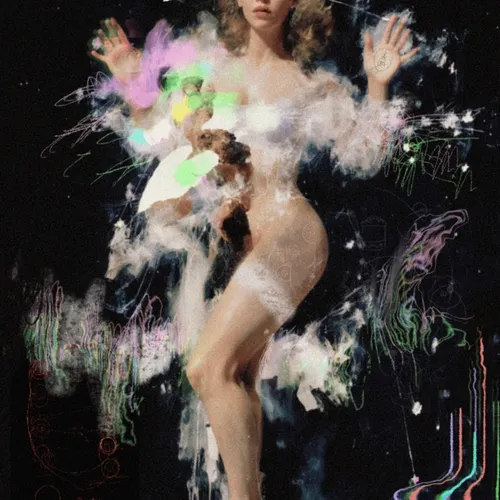“One of Chekhov’s earliest stories was a parody of mental arithmetic questions asked of schoolchildren, of which Chekhov’s question 7 is typical: Wednesday, June 17, 1881, a train had to leave station A at 3 a.m. in order to reach station B at 11 p.m.; just as the train was about to depart, however, an order came that the train had to reach station B by 7 p.m. Who loves longer, a man or a woman?”
― Richard Flanagan, Question 7
PICNIC AT THE END OF THE WORLD:
A visual saga of dissociation and multiversal grace.
This is not an apocalypse,
It’s a picnic at the event horizon of our shared hallucination
In a time when reality is glitching at the seams
when our phones know us better than our lovers,
when dreams bleed into algorithms,
and when time is a bad joke we keep forgetting the punchline to...
we lay out a blanket
We sit down
We remember what it means to feel
This series, born from psychedelic visions and late-night existential spirals, draws from Donnie Darko’s fatalistic mysticism and Terrence McKenna’s psychedelic prophecy. It asks:
What if you’re not just one person?
What if this isn’t the only Earth?
What if time is a loop, a mobius strip, a broken record you can dance to?
